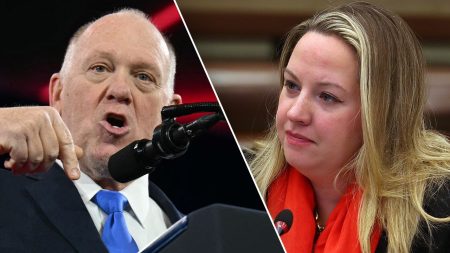Federal contracting, the second largest spending category for the U.S. government, exceeding $1.1 trillion and exhibiting a 19% increase over five years, represents a significant portion of public expenditure. This massive outlay, encompassing a diverse range of goods and services from defense systems to office supplies, has drawn increasing scrutiny for potential inefficiencies and overspending. The historical underpinnings of government contracting trace back to the late 18th century, evolving over time with legislation aimed at streamlining procedures and fostering competition. However, the sheer scale and complexity of the system has created opportunities for exploitation, leading to instances of exorbitant markups and questionable billing practices. The push for reform and greater efficiency in federal contracting is gaining traction, fueled by concerns over taxpayer dollars and the need for enhanced accountability.
The debate surrounding federal contracting reform is multifaceted, involving various stakeholders with often conflicting perspectives. Proponents of change, including political figures advocating for significant cuts to contractor spending, argue that the current system is riddled with waste and prone to abuse. They point to documented cases of overcharging and inefficiency as evidence of the need for a drastic overhaul. On the other hand, some industry leaders argue that while reform is necessary, a blanket approach could be detrimental to innovation and national security. They emphasize the importance of distinguishing between essential services and areas where cost-cutting measures are appropriate. The challenge lies in finding a balanced approach that addresses inefficiencies without jeopardizing critical government functions.
The role of private sector companies in fulfilling government contracts is central to this debate. Large government contractors, such as Booz Allen Hamilton, with billions of dollars in agreements across various agencies, play a crucial role in providing specialized services and expertise. These companies often advocate for outcome-based contracting, a model that prioritizes achieving specific objectives rather than meticulously tracking individual costs. This approach, they argue, fosters innovation and allows private industry to leverage its expertise to deliver efficient solutions. However, critics raise concerns about potential conflicts of interest and the need for rigorous oversight to ensure accountability and prevent exploitation.
The issue of overcharging and questionable billing practices by government contractors has been a recurring concern. Instances of exorbitant markups on even mundane items, such as soap dispensers, highlight the potential for abuse within the system. While regulations require price justification for contracts exceeding $2 million, loopholes exist for items classified as “commercial,” allowing companies to avoid scrutiny. This lack of transparency raises concerns about potential overspending and the need for stricter regulations to protect taxpayer dollars. Furthermore, the complexity of government contracting processes can create opportunities for companies to improperly allocate costs, as evidenced by settlements involving allegations of misallocated expenses.
The impact of potential government spending cuts on small businesses involved in federal contracting is another important consideration. While some small businesses express confidence that their operations, already optimized for efficiency, would remain largely unaffected, others express concern about the potential for delays and bureaucratic hurdles. Small businesses often rely on government contracts as a crucial source of revenue, and any disruption to the contracting process can have significant consequences. Furthermore, small businesses often play a vital role in driving innovation, and excessive cost-cutting measures could stifle their ability to contribute to critical research and development efforts. The need to balance cost-saving initiatives with the importance of supporting small business innovation presents a complex challenge for policymakers.
The future of federal contracting hinges on finding a sustainable path toward greater efficiency and accountability. Balancing the need for cost-cutting measures with the importance of supporting innovation and national security will be crucial. Streamlining procurement processes, enhancing transparency, and implementing stricter oversight mechanisms are essential steps toward achieving this goal. The ongoing debate highlights the complex interplay between government agencies, private sector companies, and small businesses in fulfilling critical government functions. Finding a balanced approach that protects taxpayer dollars while fostering innovation and ensuring the effective delivery of essential services will be paramount to the success of future federal contracting reforms.










